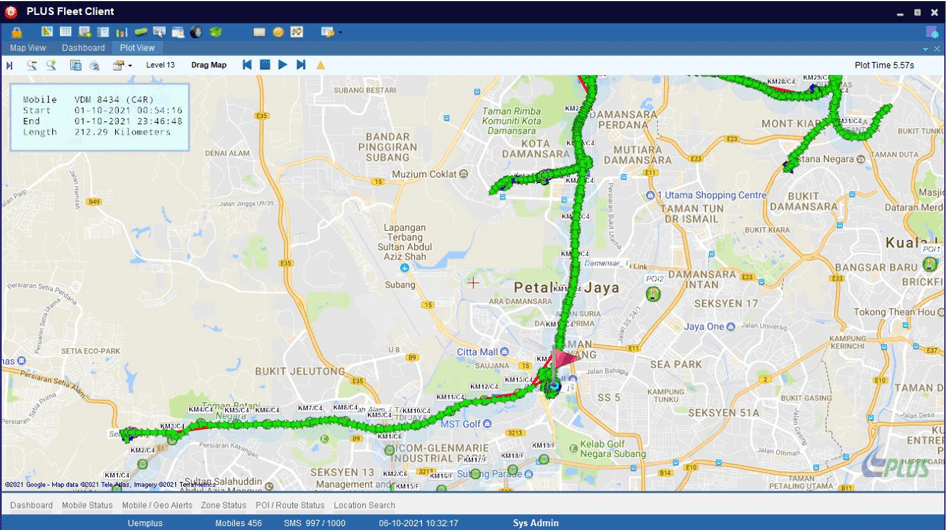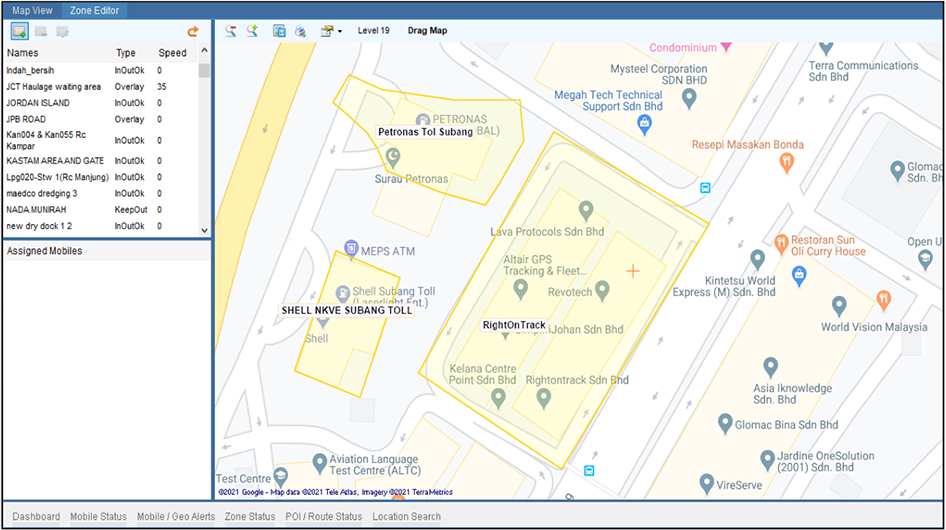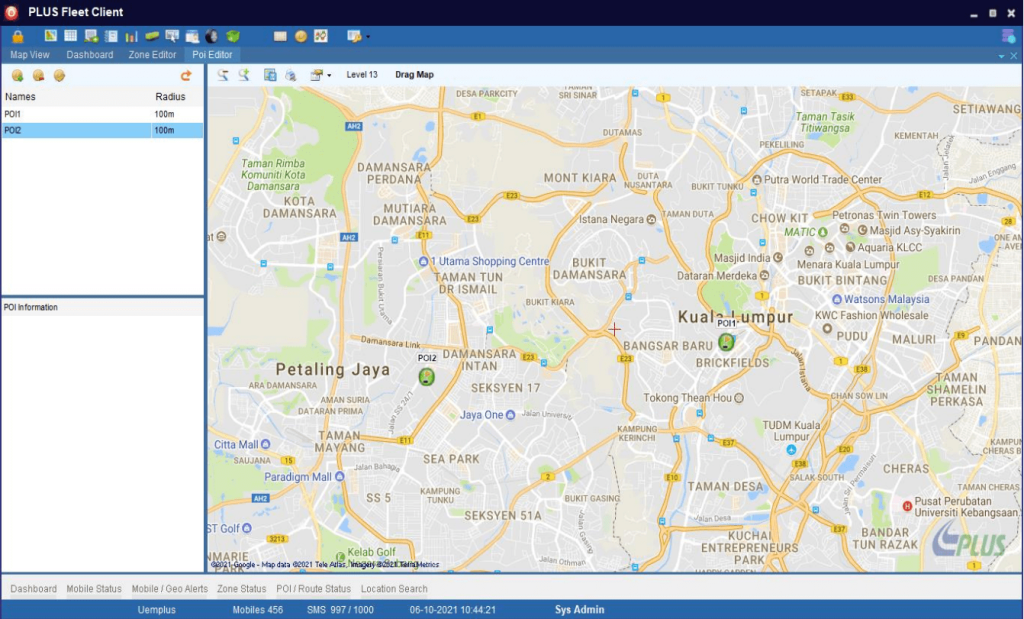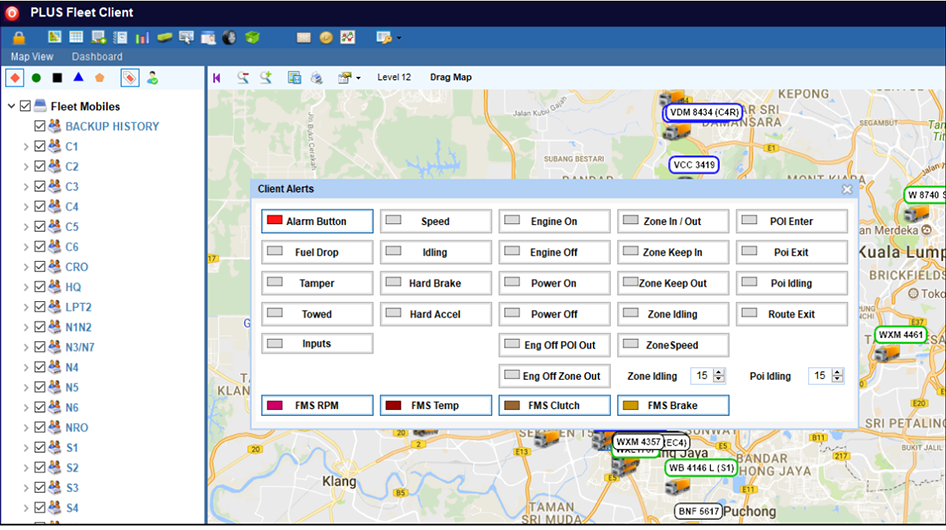Oncore Fleet Old
Make your fleet safer and more efficient with RightonTrack
An affordable fleet management system and vehicle tracking system for your business
Overview
Fuel Consumption Monitoring
Monitoring fuel use in fleets is crucial for efficient management. It reduces costs, supports eco-friendly practices, improves fleet efficiency, and ensures rule compliance. Using data-driven insights helps organizations make informed decisions that benefit both their finances and the environment.
Driver Monitoring System
Fleet driver monitoring systems help managers optimize operations, boost driver safety, cut costs, and enhance fleet efficiency. They are vital in industries where safety, compliance, and cost control matter most.
Temperature & Quality Monitoring
For perishable FMCG products (such as food and beverages), vehicle tracking can include temperature sensors to monitor the quality and integrity of the goods during transportation.
CANBus
Modern vehicles rely on a CAN Bus for data transfer between the Engine Control Unit (ECU) and electronic automotive systems. This fast communication network offers real-time diagnostic data, helping cut vehicle expenses, enhance driver safety, simplify maintenance, and promote environmental responsibility.
CRM
Fleet CRM software is essential for fleet management. It strengthens customer relationships, enhances service, and streamlines processes, boosting satisfaction, retention, and business efficiency in the competitive fleet management field.
Zoning & GeoFence
Zoning means marking areas on a map, like depots, customer sites, and delivery zones. It includes features like KeepIn, KeepOut zones, tracking vehicle movement, and automatic work logs for time analysis.
Dispatch
Dispatch monitoring in Onfleet management is a complex process. It includes planning, real-time tracking, communication, optimization, and data analysis. Its main aim is to use fleet resources efficiently, boost customer service, and meet rules. Modern technology has made dispatch monitoring more efficient.
Tire Pressure
Tire Pressure Monitoring Systems (TPMS) are vital for fleet management. They watch over tire condition, ensuring safety, fuel efficiency, and cost savings.
Immobilizer
Immobilizers are vital security tools. They protect against theft, unauthorized use, and safety risks. They boost fleet security, aid compliance, and give managers more control and peace of mind over vehicles and assets.
Behavior
Driver behavior management is a fundamental component of fleet management aimed at enhancing safety, reducing costs, and optimizing fleet performance. By monitoring and improving driver behavior, fleet managers can create safer roadways, reduce operational expenses, and improve the overall efficiency and sustainability of their fleets.
Overtime
Managing overtime is a key aspect of driver behavior management within fleet operations. By monitoring and addressing excessive overtime, fleet managers can enhance safety, control costs, and optimize their fleet’s performance.
Overtime Cost Control
Effectively managing overtime is essential for controlling costs in fleet operations. Learn strategies to monitor and reduce overtime expenses, ensuring a more efficient and budget-friendly fleet management approach.
Overtime Impact on Driver Safety
Explore the relationship between excessive overtime and driver safety. Discover how addressing overtime issues can enhance driver alertness, reduce fatigue-related incidents, and contribute to safer roadways.
Hash Brake / Acceleration
Monitoring instances of harsh braking and acceleration is crucial for effective driver behavior management. Addressing these behaviors not only promotes safety but also helps reduce maintenance costs and improve fuel efficiency.
Brake and Acceleration Patterns
Delve into the patterns of harsh braking and acceleration and their impact on fleet performance. Discover methods to analyze and address these behaviors to improve vehicle longevity and safety.
Training for Smoother Driving
Explore driver training strategies aimed at promoting smoother braking and acceleration. Learn how coaching and feedback can help drivers adopt habits that not only save fuel but also reduce maintenance costs.
Overspeed
Controlling vehicle speed is a critical component of driver behavior management. Monitoring and addressing instances of over speeding can enhance road safety, lower the risk of accidents, and reduce fuel consumption, all while improving the overall performance of the fleet.
The Dangers of Overspeeding
Understand the risks associated with over speeding and how it affects driver safety and fleet operations. Learn strategies to identify and mitigate instances of excessive speed for a safer and more efficient fleet.
Speed Limit Compliance
Explore the importance of speed limit compliance in fleet management. Discover tools and techniques to monitor and enforce speed limits, reducing the risk of accidents and improving overall fleet performance.
Idling
Managing excessive idling is a significant element of driver behavior management. By addressing idling habits, fleet managers can improve fuel efficiency, reduce emissions, and minimize wear and tear on vehicles, contributing to a more sustainable and cost-effective fleet operation.
The Environmental Impact of Idling
Examine the environmental consequences of excessive idling and its contribution to greenhouse gas emissions. Learn how reducing idling time can make your fleet more eco-friendly and sustainable.
Idling Reduction Strategies
Discover practical strategies and technologies to reduce idling in your fleet. Explore the benefits of minimizing engine idling, including fuel savings, lower maintenance costs, and improved air quality.

Legend:
- Top 10 high fuel consumption vs journey (km) graph
- Fleet status
- Violations count
- Fleet Activity, Mobiles Status and Zone Activity in pie charts

Legend:
- Vehicle Current Position – each vehicle provides information such as vehicle plate number (by default), time
and date, event type, engine status, speed, direction, distance traveled, duration engine on/0ff, street level
location. - Point of Interest (P.O.I) – P.O.I will upload on the map by default upon every created P.O.I .
- Fleet Status – color status indicators and event details.
- Mobile Group – Folder and sub-folder for vehicle categorization.
- Tabs Selection – including edit log out, mobiles group, map viewer, fleet view, plot viewer, report viewer, zone
editor and P.O.I editor. - Map Navigation Tools – including zoom in and out, grayscale mode, save map image, print map image, route
control, search location, P.O.I view level, zone view level. - Search Location Function.
Oncore Fleet Desktop
Oncore Fleet Desktop is a client based application that is installed locally in the client workstation. Due to its simple setup, user can transfer Oncore Prime to other
workstation using the given user license.
Historical Tracking
User can generate historical position data for particular vehicle and view animations of past tracks. The system also displays start and end point of vehicle trails on the map from the plot range.


Geo Fence
User can establish invisible boundaries or known as geo fence in the system. There are three (3) types of geo fence available for selection.
Point Of Interest
Point of Interest editor allow user to add own point of interest on the map for reference.


Real Time Alerts
Real time alerts are made available on the system, user’s mobile phone, or e-mail or all as mentioned.
User can modify alerts such as alarms, towed, hard brake, hard acceleration, speed, idling, fuel drop, POI, zone or any other customized inputs under this section.



